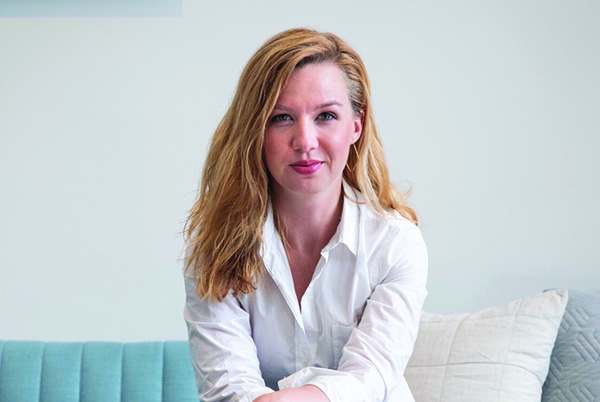Let’s talk about Tomorrowland.

When I was a kid, my family loaded up the station wagon and drove from Chicago to Disney World for Christmas. I was twelve years older than my younger half-siblings, but Disney was a place where that never mattered. We were all just the right age, regardless of age. Mickey Breakfasts for my little sister and teacup rides for my little brother, but I loved Tomorrowland. Truth be told, I still love Tomorrowland.
When Disneyland opened on July 17, 1955, Walt Disney dedicated these words to Tomorrowland: “A vista into a world of wondrous ideas, signifying man’s achievements … a step into the future, with predictions of constructive things to come.”
At the time, there was a beautiful poster made up of pastel-colored vertical lines that resembled a futuristic city enveloped in an atomic symbol. The only text on it read, “Tomorrowland. Make the Future.” It was such a simple tagline, but the opportunity behind it was boundless.
These words have never felt more relevant than they do today.
In April, I was invited to a think tank dinner hosted by the Mozilla Foundation and the Berggruen Institute. The Mozilla Foundation is a global nonprofit aimed at shaping a safer digital world. They are best known for their subsidiary, which owns and operates the Firefox web browser. Still, the parent foundation seeks to pave a safer digital future for our society by bringing together experts from all sectors to imagine what that future might look like. By partnering with the Berggruen Institute, they have cultivated a network of global thinkers and specialists who can collaborate to tackle some of the world’s most significant challenges.
Our small dinner party of twelve included journalists, illustrators, activists, academics, and technologists. The purpose of this particular gathering was to assess the future of deliberative democracy and technology. Does technology, specifically AI (artificial intelligence), enhance human deliberation in the democratic process? What are the pros and cons of integrating algorithms into this process? Is “something” lost when deliberation is mediated by technology? How does consent operate in the space of deliberation when AI agents and algorithms intervene? What guardrails should we put in place to ensure that the information being exchanged is accurate and honest? Most importantly, what role do governments, unions, and corporations all play in this technological cultural shift?
These questions require more time and space than a small salon of experts can tackle in a single night, but building a future often begins with nothing more than a group of thinkers coming together to share ideas and think through the challenges we face, both singularly and collectively. For my part, this dinner left me asking myself a lot of new questions.
What do we see as our role in the future of technology, both within our industry and globally? What types of discussions can our Technological Changes Committee facilitate in order to help steer our Local and our industry in this new era of technology?
As one of the technical Locals in Hollywood, I encourage all our members to start having these discussions. Speak to your friends, your co-workers, and your families about these complex ideas. We are all stakeholders in this changing landscape, and we must all be engaged if we hope to guide the future in a direction where technology works for workers. Together, we can co-create the future narratives of technology and build a better future for us all.
In Solidarity,
President Jillian Arnold